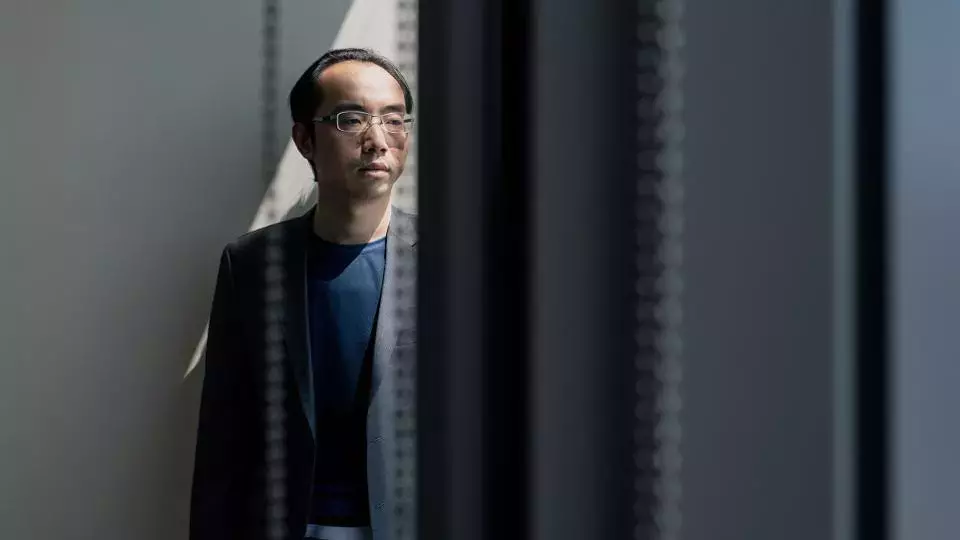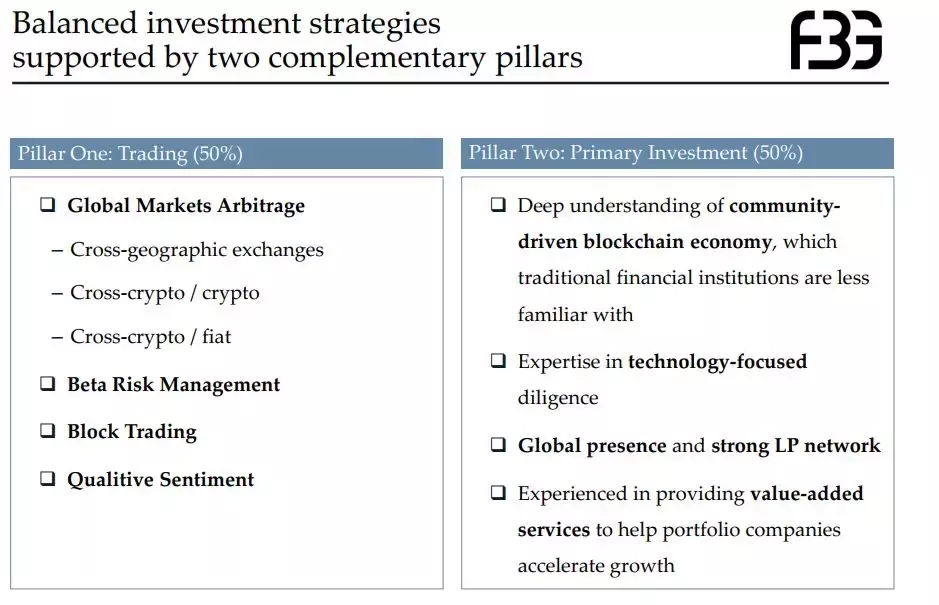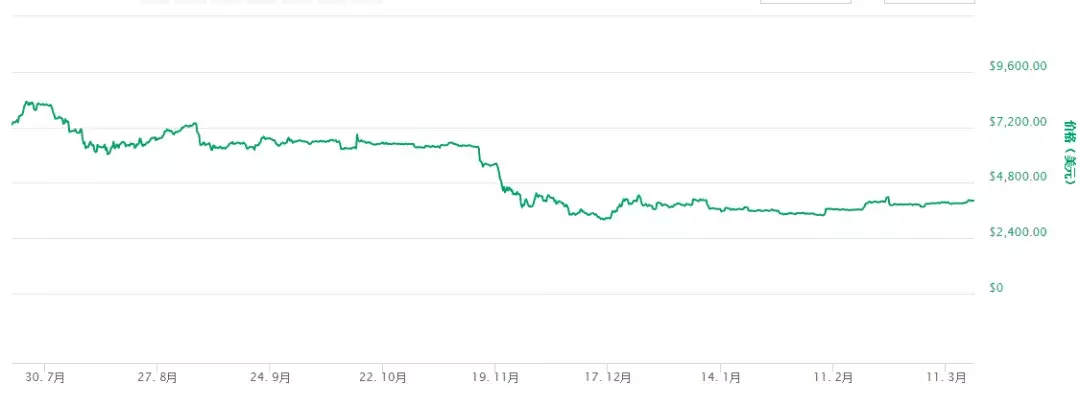The mysterious FBG Capital, along with its glory and turmoil
This article was first published on March 17, 2019, on the Chain Catcher WeChat account, by author Gong Quanyu.
As we all know, FBG Capital and its founder Zhou Shuoji are among the biggest winners in the cryptocurrency market. Media reports indicate that the total number of investments has exceeded 80, including many well-known projects such as OmiseGO, Zilliqa, 0X, and Aelf. Last August, Zhou Shuoji even appeared on the cover of Forbes magazine.
However, the public's understanding of FBG and Zhou Shuoji remains quite limited. FBG Capital does not have a PR department and has almost no public relations of its own, and there are only two or three public interviews with Zhou Shuoji. How did FBG Capital grow and develop? What are FBG's investment styles and characteristics? What difficulties are they facing now? Most people feel confused and curious about these questions.
To answer these questions, Chain Catcher (ID: iqklbs) interviewed dozens of entrepreneurs and investors who have interacted with FBG Capital or Zhou Shuoji. Although the difficulty of the interviews exceeded past experiences, we still obtained a lot of valuable information and hope to help readers understand a detailed and authentic FBG Capital and Zhou Shuoji, while reflecting the overall survival status of cryptocurrency investment institutions through FBG Capital as a typical example.
1. Development History and Strategy
Today, FBG Capital and Zhou Shuoji are inseparable, but it was not the case at the beginning of its establishment.
According to Chain Catcher’s inquiry, Nebulas founder Xu Yiji has claimed to be one of the founders of FBG Capital on multiple occasions. "FBG was initiated by me leading the way to get in touch with Shuoji around June to July 2016. At that time, he was still doing some trading and foreign exchange-related things, which I thought were not sexy." Xu Yiji said in an interview with 499block last December, "After launching the fund, we raised 1,000 BTC."
Although there is no information related to Xu Yiji in all materials and reports about FBG Capital, Chain Catcher verified some information through multiple channels, including Li Xiong, the founder of early FBG investment project ICO365.
"FBG Capital was actually initiated by Zhou Shuoji and Xu Yiji. During the investment process in the second half of 2016, I communicated a lot with both of them," Li Xiong told Chain Catcher. However, in September 2016, after Xu Yiji received an offer from Ant Financial, he gradually faded out of FBG Capital's related business, and although he returned to the cryptocurrency space a year later, he had no public interaction with FBG Capital.
As a result, Zhou Shuoji became the sole controller of FBG Capital, marking the beginning of FBG Capital's rapid development phase. At that time, the price of Bitcoin had fluctuated below 4,000 yuan for two consecutive years, and a new bull market was brewing. "Many institutions failed to succeed because they entered the market too early, but FBG entered at just the right time, during Bitcoin's rising period," said He Yi (a pseudonym), a partner at a well-known investment institution.
Zhou Shuoji also mentioned in an event why he chose to enter the investment market at that time. He had been involved in the secondary market for digital currencies since 2014. In addition to directly investing in Bitcoin, he frequently implemented arbitrage trading strategies such as "brick moving" and quantitative trading. "During this process, I discovered two trends: one is that the scale of digital assets will continue to expand, and the other is that Bitcoin's share will continue to decline. Our goal is to find the next asset or category of assets that will continue to expand in share during this high-speed growth," Zhou Shuoji said at the event.
At the same time, the main body of blockchain investment in 2016 and 2017 was mostly individuals, with only a few institutions like Distributed Investment focusing on blockchain investment, along with a few equity investment institutions like Danhua Capital and PreAngle beginning to explore blockchain investments. The landscape of cryptocurrency investment institutions was still in a relatively early stage.
To quickly establish FBG Capital's differentiated advantage, Zhou Shuoji adopted a strategy that seems quite clever today: bringing high-quality overseas projects to China. "At that time, FBG had a certain foresight, bringing many overseas projects to do roadshows in China, building some resource connections," Xu Yiji also mentioned in that interview.
Li Xiong also stated that the AE, SNT, and other cryptocurrencies on the ICO365 platform were all introduced by FBG Capital, "The boss is very good at introducing impressive overseas projects and then igniting them in the Chinese community."

Zhou Shuoji (from Forbes magazine)
As the leader of the "Big V Gang," Zhou Shuoji indeed has significant advantages in networking and industry vision. For example, he has maintained close ties with Huobi, and besides FBG Capital being selected as a Huobi Super Node, Zhou Shuoji serves as a member of the Huobi Blockchain + Industry Alliance Committee and is running for the leader of Huobi's public chain. These resource advantages help enhance the visibility and competitiveness of the invested projects, while also strengthening public recognition of the FBG Capital brand.
"He is very humble and friendly, always willing to help us, giving us many suggestions and directions. He often invites us to events and frequently shares his views on the industry in groups," praised Emma Liao, co-founder of FBG investment project Ultrain, about Zhou Shuoji. Another founder of an FBG investment project, who requested anonymity, also stated that Zhou Shuoji's greatest characteristic is his loyalty.
It is worth noting that Zhou Shuoji is also quite enthusiastic about serving as an advisor for invested projects, including at least nine projects such as Aeternity, Aelf, Zilliqa, and Covalent, which is uncommon among investors in mainstream cryptocurrency investment institutions.
More importantly, Zhou Shuoji's vision is indeed sharp, having invested in numerous high-return and high-growth projects like 0X, OmiseGO, and Zilliqa, bringing FBG Capital returns of dozens to even hundreds of times, establishing FBG Capital's position in the industry.
As for FBG Capital's investment characteristics and processes, Emma Liao told Chain Catcher that in her view, FBG Capital's investment decision-making process aligns very well with traditional VC investment processes and rules. "Every member of the FBG Investment Committee communicated deeply with us, researching the project's competitive barriers, technical standards, team backgrounds, and other aspects in a very thorough and rigorous manner."
In a report by Forbes last year, former FBG trader Gordon Chen also revealed FBG's unorthodox ICO investment methods, which include closely monitoring the founding team, monitoring Telegram chat rooms, and maintaining communication with scholars, scientists, engineers, investors, and community leaders. Chen also stated that when he was asked to investigate ICO projects, he constantly met with cryptocurrency project teams, "I only slept three to four hours a night that week."
In October 2017, FBG Capital launched a globalization strategy, establishing offices in countries such as the United States, South Korea, Singapore, and Israel. By August 2018, there were nearly 50 full-time employees globally involved in investment operations, which helped FBG Capital expand its project acquisition channels and stay informed about market trends. According to a rough estimate by Chain Catcher, nearly half of FBG Capital's investment projects in 2018 were primarily foreign background projects. At the same time, very few other cryptocurrency investment institutions achieved the same level of globalization, which has also become one of FBG Capital's competitive advantages.
Another important pillar of FBG Capital's business is secondary market trading, including high-frequency trading for arbitrage purposes and short-term trading based on insider information and market judgment. Before 2018, for most cryptocurrency investment institutions, almost all business was concentrated in the primary market. However, thanks to Zhou Shuoji's previous rich experience in the secondary market, FBG Capital regarded secondary market trading as one of its most important businesses from the very beginning, which also brought considerable profits to FBG Capital.

FBG Capital's fundraising documents produced in 2018
After achieving high results in investment and trading businesses, Zhou Shuoji's ambition gradually exceeded this. In an interview with BABI Finance, he expressed his vision of building FBG Capital into "the Goldman Sachs of the digital currency field." Goldman Sachs has strong control in the traditional financial sector, covering various businesses such as investment banking, asset management, investment, and consulting. However, the roles in the blockchain industry are relatively scattered, and "the Goldman Sachs of the digital currency field" is highly attractive to all major players.
Therefore, in the first half of 2018, FBG Capital also established several derivative business brands, including trading solution provider FBG ONE, think tank department FGB X Lab, and a marketing consulting company Block72 jointly established with invested companies, attempting to systematically output the experience and skills accumulated over the years to the industry, thereby forming and enhancing the ecological competitiveness of the entire FBG system.
At the same time, FBG Capital's team size is rapidly expanding, bringing in a large number of senior talents from well-known companies such as Huaxing Capital, Huawei, Gemini, and Ping An Insurance. A blockchain investor, Zhang Jin (a pseudonym), who had multiple interactions with FBG's research department at their Beijing office, found that most team members were in their thirties or forties, with very rich work experience, significantly different from other research institutions that are mainly composed of younger individuals.
As various derivative business lines gradually unfolded, FBG Capital's public relations strategy began to change. "During our critical period of expansion, we need some voices to appear in mainstream media," Zhou Shuoji stated in an interview with BABI Finance last August.
Based on this mindset, Zhou Shuoji, who had previously hardly accepted any media interviews, finally broke the routine in July-August of last year, accepting interviews from Forbes magazine and BABI Finance. However, Zhou Shuoji may not have anticipated that this interview would instead bring him many negative effects. Insiders told Chain Catcher that Zhou Shuoji was very dissatisfied with the Forbes report.
In the Forbes report titled "Tricks of a Crypto Trader," Zhou Shuoji's market operations were referred to as "Tricks," carrying a clear condescending tone. At the same time, the article pointed out that FBG Capital repeatedly profited through insider information and marketing hype, stating, "Here, the democratic ideal is a joke; people rely on insider knowledge to achieve financial freedom."
2. The Eruption of Accumulated Problems Amidst the Winter
However, Zhou Shuoji may not have anticipated that while FBG Capital planned to expand its business lines and increase exposure, the industry situation took a sharp turn for the worse. The price of Bitcoin fell from $8,231 in July and August last year to $5,884, and although it rebounded somewhat, it dropped to nearly $3,000 by the end of the year from over $6,000. Other mainstream and smaller cryptocurrencies experienced even larger declines, with many falling below their private placement prices.

Bitcoin price trend since the end of July last year
In this context, almost all cryptocurrency investment institutions faced unprecedented difficulties: profitability challenges, exit difficulties, and fundraising challenges. The larger the investment scale, the more severe the losses, and FBG Capital was no exception.
Many projects invested by FBG Capital also saw significant declines in their token prices, even becoming "stuck." The assets used for investment faced huge devaluation losses. In addition, many invested projects were unwilling to go public during the bear market, and the average time required for investment to go public significantly exceeded that of the bull market. Coupled with the "stuck" situation in the secondary market, FBG Capital likely faced difficulties in cash recovery and shrinking cash flow in the past six months.
"(The continuous decline in token prices) will affect our entire liquidity strategy management. We will now pay more attention to liquidity, the investment speed will slow down, and the requirements will be higher," Zhou Shuoji said in an interview with media person Chen Yijia last August.
According to Crunchbase data and other online materials, Chain Catcher found that FBG Capital has only invested in three blockchain projects since September last year: AERGO, Ampleforth, and ThunderCore, which is less than one-tenth of the number of investments made from January to August last year. "Like most cryptocurrency investment institutions, FBG has basically spent all the money it raised before," He Yi said.
In the context of wealth shrinkage and an unending bear market in the entire industry, FBG Capital's new round of fundraising also cannot replicate the smooth situation of previous years, facing slow progress.
Quantitative arbitrage has always been an important means for FBG Capital to achieve asset appreciation and profit. However, since 2018, a large number of quantitative teams have entered the cryptocurrency market, even becoming standard for mainstream cryptocurrency investment institutions. The competitive landscape has become increasingly fierce, and the entire industry's quantitative arbitrage space has significantly shrunk. Even FBG Capital, which started with quantitative arbitrage, finds it difficult to maintain its original standards in such a market environment.
The aforementioned issues are common among cryptocurrency investment institutions, but FBG Capital actually faces more troublesome special problems. "FBG's biggest problem is that it cannot retain talent; the liquidity is very high," He Yi told Chain Catcher. The personnel turnover at FBG Capital is higher than that of other cryptocurrency investment institutions, and many executives have already left.
According to various sources, Bo Dong, a partner at FBG Capital who mainly operated in the secondary market, left to start his own business in early 2018. Richard Liu, a partner at FBG Capital and head of FBG X Lab, left in the second half of 2018, along with several other executives and employees.
Chain Catcher was unable to successfully interview former FBG Capital personnel for further information, but He Yi told Chain Catcher that this might be due to issues with profit distribution, and there are also problems with FBG Capital's management system. "Now the entire team is tightly managed by Zhou Shuoji. They will be compensated as they should, but he is guarding against them leaving," He Yi said.
As for FBG X and other derivative businesses, due to the overall poor market conditions and high personnel turnover, most have been shelved or are progressing slowly.
Overall, FBG Capital achieved impressive results in the cryptocurrency market due to its first-mover advantage and reasonable strategies. However, now facing the industry's winter, the accumulated problems hidden within the business system and team structure built by FBG Capital have erupted one after another, and its substantive competitiveness may have weakened. Fortunately, FBG Capital's industry position has remained largely unaffected, and there is still ample time. FBG Capital and Zhou Shuoji need to quickly find new breakthroughs and reconstruct the internal mechanism and culture of the FBG system, as well as external barriers.
After all, Goldman Sachs became Goldman Sachs not because it is adept at monetizing various resources or clever speculation, but because of its comprehensive professional management structure, the spiritual core represented by a partnership culture, and its profound insights into industry trends. This is a long-term task for all cryptocurrency investment institutions.
In fact, FBG Capital's experience is just a microcosm of the current situation of cryptocurrency investment institutions. In the context of rapid wealth accumulation and accolades pouring in, many investment institutions' investment mechanisms and management systems have not kept pace with their growth, leading to the aforementioned problems. The bear market is both a torment and a trial for these institutions, as well as an opportunity for transformation and evolution.
The development of the blockchain industry is undoubtedly inseparable from the support of investment institutions, especially those with deep insights and a sense of industry responsibility. If FBG Capital can seize this opportunity, strengthen team culture, optimize management and risk control mechanisms, and enhance its ability to grasp industry trends, while actively contributing to the long-term development of the industry and pursuing value investment, it will undoubtedly endow itself with the qualities and capabilities to navigate through bull and bear markets, thus truly qualifying to challenge the title of "the Goldman Sachs of the digital currency field."









